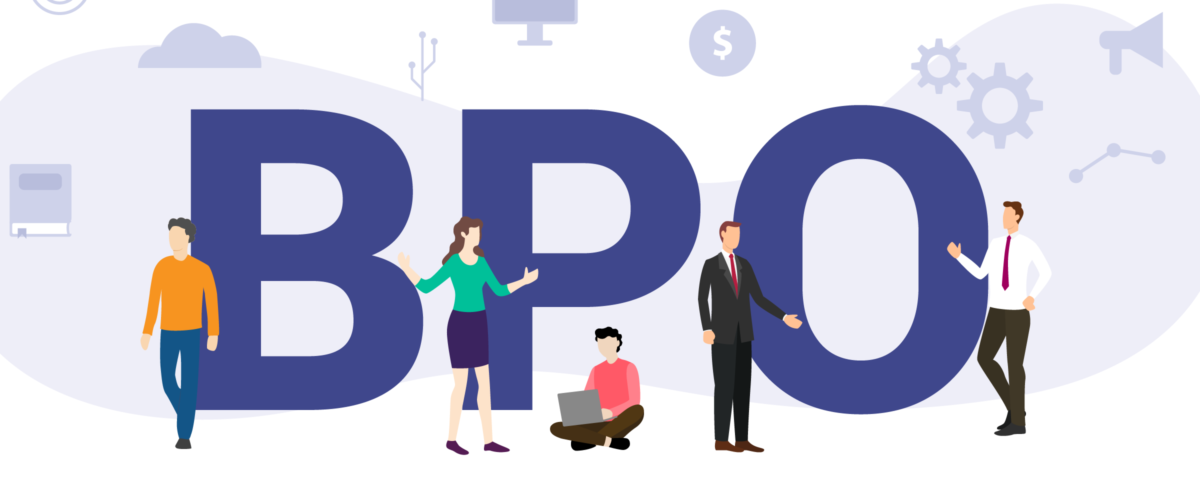
Business Process Outsourcing (BPO) and call centers are integral components of the modern business landscape, playing crucial roles in enhancing operational efficiency and customer interactions. In this comprehensive exploration, we delve into the basics of BPO and call centers, understanding their definitions, functions, key differences, and their significance in today’s global business environment.

Defining BPO:
Business Process Outsourcing (BPO) refers to the practice of contracting out specific business functions or processes to a third-party service provider. The aim is to leverage external expertise, often in areas where the outsourcing partner has a competitive advantage, allowing the hiring organization to focus on its core competencies.
Functions and Processes Outsourced in BPO:
- Back-Office Operations: This includes non-client-facing functions like data entry, payroll processing, and internal business processes.
- Finance and Accounting: Outsourcing financial functions, such as bookkeeping, invoicing, and financial reporting.
- Human Resources: BPO can handle HR tasks like recruitment, payroll administration, and employee benefits management.
- Supply Chain Management: Outsourcing logistics, inventory management, and procurement processes.
- Customer Support Services: While customer support is often associated with call centers, it also falls under the broader umbrella of BPO.
Table of Contents
Understanding Call Centers:
Call Centers, on the other hand, are specific units within an organization or external entities dedicated to handling inbound and outbound customer communications. They can function as an integral part of a company or operate independently as third-party service providers.
Types of Call Centers:
- Inbound Call Centers: Receive incoming calls from customers seeking assistance, information, or support.
- Outbound Call Centers: Initiate calls to customers for sales, surveys, or other proactive communication.
- Blended Call Centers: Combine both inbound and outbound services, offering a more versatile approach.
Key Differences Between BPO and Call Centers:
Scope of Operations:
- BPO: Encompasses a broader spectrum of business processes beyond customer interactions, including administrative, financial, and back-office functions.
- Call Center: Primarily focuses on managing and handling customer communications, either through inbound or outbound channels.
Nature of Services:
- BPO: Involves outsourcing entire business functions or processes to achieve operational efficiency and cost savings.
- Call Center: Specializes in managing and handling voice-based customer interactions, though modern call centers often integrate other communication channels.
Client Interaction:
- BPO: May or may not involve direct client interaction, as many BPO functions are internal and don’t necessarily interact with end customers.
- Call Center: Directly interacts with customers, addressing queries, providing support, or engaging in sales conversations.
Focus Areas:
- BPO: Aims at improving overall business efficiency, reducing costs, and allowing organizations to concentrate on core competencies.
- Call Center: Primarily focused on delivering exceptional customer service, sales, or conducting surveys to gather valuable customer feedback.
Significance of BPO and Call Centers in Business:
1. Cost Efficiency:
- BPO: Allows organizations to benefit from cost savings by outsourcing non-core functions to regions with lower operational costs.
- Call Center: Provides cost-effective solutions for managing customer interactions, especially when compared to in-house customer support operations.
2. Global Reach:
- BPO: Enables organizations to tap into global talent and expertise, expanding their reach beyond geographic boundaries.
- Call Center: Facilitates 24/7 customer support, catering to a global customer base and different time zones.
3. Specialized Expertise:
- BPO: Brings in specialized expertise in various business functions, ensuring that tasks are handled by professionals in the field.
- Call Center: Employs agents with specific skills in customer service, sales, or technical support to provide focused and specialized assistance.
4. Focus on Core Competencies:
- BPO: Allows organizations to focus on their core competencies by outsourcing non-core functions, leading to increased efficiency.
- Call Center: Frees up internal resources by handling customer interactions, enabling businesses to concentrate on product development, innovation, and strategic planning.
5. Scalability:
- BPO: Offers scalability in operations, allowing organizations to adapt to changing business needs and scale up or down as required.
- Call Center: Easily scalable to handle fluctuations in call volumes, ensuring efficient customer service during peak times.
Challenges in BPO and Call Centers:
1. Data Security Concerns:
- BPO: Handling sensitive data requires robust security measures to ensure data protection and compliance with regulations.
- Call Center: Customer information needs to be handled securely to maintain trust and comply with privacy regulations.
2. Quality Assurance:
- BPO: Maintaining consistent quality across various outsourced functions is a challenge that requires stringent quality assurance measures.
- Call Center: Ensuring high-quality customer interactions is crucial for customer satisfaction and brand reputation.
3. Communication Barriers:
- BPO: Dealing with language and cultural differences in a global context can pose communication challenges.
- Call Center: Effective communication is critical to understanding customer needs and providing accurate assistance.
4. Technological Advancements:
- BPO: Keeping up with technological advancements is essential for delivering efficient services and maintaining a competitive edge.
- Call Center: Integrating new communication channels and technologies to meet evolving customer preferences is a constant challenge.
The Future of BPO and Call Centers:
1. Integration of AI and Automation:
- BPO: Increasing integration of AI and automation to enhance efficiency and streamline processes.
- Call Center: AI-powered chatbots and automation to handle routine queries, allowing human agents to focus on complex interactions.
2. Enhanced Customer Experience:
- BPO: A growing focus on enhancing the overall customer experience through personalized services and efficient processes.
- Call Center: Integration of omnichannel communication for a seamless and consistent customer experience.
3. Continued Globalization:
- BPO: Continued globalization with organizations leveraging talent and resources from around the world.
- Call Center: Expansion of global call center operations to provide 24/7 support and cater to diverse customer bases.
4. Skill Development:
- BPO: A focus on skill development to meet the evolving demands of outsourcing functions and maintain competitiveness.
- Call Center: Continuous training and upskilling of agents to handle complex customer interactions and emerging technologies.
Conclusion: Leveraging BPO and Call Centers for Success
In the dynamic landscape of modern business, understanding the basics of BPO and call centers is crucial for organizations looking to enhance their operational efficiency and deliver exceptional customer experiences. By leveraging the strengths of BPO to streamline various business functions and optimizing call center operations for effective customer interactions, businesses can position themselves for success in an ever-evolving global market. As technology continues to advance and customer expectations evolve, the synergy between BPO and call centers will remain a driving force for organizational growth and excellence in service delivery.
If you want to speak to a guru regarding PBO visit Cloud Tech Gurus.
Please let us know your thoughts on our current performance or suggest what you’d like to see next. Feel free to reach out via email or give us a call at 818-864-7729 to say hello; we value your feedback and always enjoy hearing from you.
